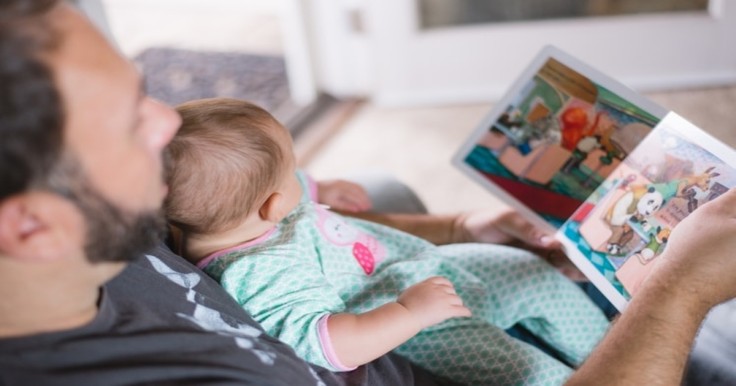
More and more dads are working from home or staying at home with their children. As such, it is more vital to discuss paternal depression. Depression among dads is less mentioned than PTSD for moms. Dads have less support and may be less inclined to seek treatment.
"Depression is not a weakness of character, and seeking treatment is taking charge of your life," notes Will Courtenay, Ph.D.
He adds that it is normal for new dads to need help entering fatherhood, citing about 3,000 new dads get depressed each day. Further, the risk of depression among dads increases by 68% during the baby's first five years, Parents noted.
What Causes Paternal Depression?
A father's postpartum depression happens due to hormonal changes during the woman's pregnancy and post-birth. Cortisol, prolactin and estrogen levels go up while testosterone levels significantly drop—meanwhile, oxytocin levels increase which helps fathers interact positively with their children.
Evolutionary biologists note that hormonal fluctuations may be nature's way of ensuring fathers bond with their baby. Risk factors for paternal depression include:
- Financial problems
- Stress
- History of depression
- Sick or premature baby
- Loss of loved one
- Relationship instability
Dr. Courtenay further noted that half of men whose partners have been diagnosed with postpartum depression also tend to be depressed. Depression in both mom and dad can have drastic consequences for the children and the couple's relationships.
How to Beat Postpartum Depression
A new psychology study published in "Frontiers in Psychology" revealed an efficient way to prevent paternal postpartum depression. The study was conducted among diverse demographics of age, ethnicity, employment status, and education.
The participants were interviewed at the first month, the sixth month, and the first year after birth. The researchers determined that a father's involvement with infant caregiving during the first year of life significantly influences paternal mental health, Psypost reported.
New dads who spent more time caring for their newborns had more confidence in their parenting abilities. Further, the better they can provide food, toys, clothing, diapers, and other essentials needed to grow and thrive, the lesser the likelihood that depressive symptoms will arise. These fathers feel more competent and satisfied in their roles as providers.
Depressive symptoms, as well as confidence in parenting, were noted. Even in cases where the father does love life with the baby's mother, an involved father still had better mental health, Science Alert said.
ALSO READ : More Fathers Becoming Involved In Parenting, But Support And Guidance From Community Lacking
Psychologist Olajide Bamishibin Jr, one of the researchers involved in the study, advised dads to "get involved with your children at an early age, and as often as you can."
Further, Bamishibin stressed the importance of awareness of paternal depression as a severe issue. "Paternal depression should be taken seriously because it affects fathers and thereby impacts the entire family."